- Home
- Sarah Woodbury
Winds of Time
Winds of Time Read online
A novella from the After Cilmeri Series
Winds of Time
by
Sarah Woodbury
Smashwords Edition
Copyright © 2012 by Sarah Woodbury
Cover image by Christine DeMaio-Rice at Flip City Books
http://flipcitybooks.com
Winds of Time is a 20,000 word novella from the After Cilmeri series:
Meg had thought that taking a commuter flight from Pasco, Washington to Boise, Idaho would be a simple matter. But nothing is simple for Meg when it comes to travel, and especially not when she finds herself in the Middle Ages again instead of in a plane crash on a mountain side in Oregon.
And when the pilot takes off without her in a quest to return to the twenty-first century, Meg will need every last bit of maturity and knowledge she gained in the sixteen years she spent in the modern world—to survive even a day in this one.
A note from the author: This story was started many years ago, as part of Footsteps in Time. When it came down to it, however, the story didn’t fit with what was happening with David and Anna and had to be put aside. Happily, I am now able to share, in ebook form, the story of Meg’s return to the Middle Ages. Thus, Winds of Time takes place between Part 1 and Part 2 of Footsteps in Time, Book One in the After Cilmeri Series. I think you will enjoy Winds of Time more if you read Footsteps in Time first. Diolch yn fawr (thank you)!
–Sarah
To everyone who,
even for a moment,
wishes they could travel back in time …
Books in the After Cilmeri Series:
Daughter of Time (prequel)
Footsteps in Time (Book One)
Winds of Time
Prince of Time (Book Two)
Crossroads in Time (Book Three)
Other books by Sarah Woodbury:
The Last Pendragon
The Pendragon’s Quest
Cold My Heart: A Novel of King Arthur
The Gareth and Gwen Medieval Mysteries:
The Good Knight
The Uninvited Guest
www.sarahwoodbury.com
A Brief Guide to Welsh Pronunciation
c a hard ‘c’ sound (Cadfael)
ch a non-English sound as in Scottish "ch" in "loch” (Fychan)
dd a buzzy ‘th’ sound, as in “there” (Ddu; Gwynedd)
f as in “of” (Cadfael)
ff as in “off” (Gruffydd)
g a hard ‘g’ sound, as in “gas” (Goronwy)
l as in "lamp" (Llywelyn)
ll a breathy “th” sound that does not occur in English (Llywelyn)
rh a breathy mix between ‘r’ and ‘rh’ that does not occur in English (Rhys)
th a softer sound than for ‘dd,’ as in "thick” (Arthur)
u a short ‘ih’ sound (Gruffydd), or a long ‘ee’ sound (Cymru—pronounced “kumree”)
w as a consonant, it’s an English ‘w’ (Llywelyn); as a vowel, an ‘oo’ sound (Bwlch)
y the only letter in which Welsh is not phonetic. It can be an ‘ih’ sound, as in “Gwyn,” is often an “uh” sound (Cymru), and at the end of the word is an “ee” sound (thus, both Cymru—the modern word for Wales—and Cymry—the word for Wales in the Dark Ages—are pronounced “kumree”)
Chapter One
I wrapped my arms around my waist and leaned forward, trying to control my nausea as the plane shuddered and jerked. The pilot put out a hand to steady me, and then quickly moved it back to the controls.
“My God, Meg!” he said. “What just happened? We should be dead on that mountain! Now, I can’t raise anyone on the radio—nothing but static—and I’m flying by the seat of my pants here. The electronics are good, but what I can see of the terrain looks totally wrong. I don’t understand it!”
“Just put her down if you can, Marty,” I said. “We can figure out what’s going on when we land.”
“Put her down? Where!” And then he screeched. The trees he’d been flying over gave way to a heavy sea, rolling beneath us.
“Jesus Christ!” Marty circled the plane back towards land.
I said nothing, just looked out the window at the country below, my chin in my hand. The fog was not as thick now, but it limited visibility to a quarter-mile. There were no houses or towns in sight and the land appeared rocky all the way down to the shoreline.
“Where in the hell are we?” Marty said.
As we were supposed to be flying over the mountains of Oregon right now, I could understand his bewilderment. I swallowed hard. The environment, if not the land itself, looked familiar to me.
The Middle Ages … again.
I decided this fact wouldn’t comfort Marty in the slightest.
“Fly south, Marty,” I said, after he circled the plane for a third time.
I could make out the sun, trying to shine through the fog. It sat very high in the sky and made me think we were in the same late summer we’d left in Oregon, temporally anyway. Wild-eyed, Marty turned the plane as I had asked. We flew on, unspeaking. The land rolled away below us. The rocky coastline gave way to a hilly, grass-covered terrain, interspersed with stands of trees. Everything was beautifully green. The patches of ground we could see didn’t include a city.
“We’re going to run out of fuel soon,” Marty said, his voice so quiet I almost couldn’t hear him over the drone of the plane. “When that happens, what do you propose we do?”
I sighed. “Just put her down. Find a field. Hopefully people live among these trees, though I don’t see any smoke.”
“Smoke,” Marty said. “I gather I’m not looking to follow the power lines?”
“I’m afraid there won’t be any power lines.”
“You do know where we are,” Marty said. “What’s going on here?”
I turned to look at him. “This has happened to me before,” I said, enunciating as clearly as I could. “I can’t explain it, but I’m afraid we’ve been displaced in space and time, to a world not our own.”
Marty scoffed his disbelief. “You’re kidding me!” Then, he looked through the windscreen at the pristine landscape over which we were flying. “You aren’t kidding me?”
I shook my head, no happier with this new reality than Marty, but I’d come to terms with the possibility of it long ago. “Sixteen years ago, I lived in thirteenth century Wales for close to a year,” I said. “I fear that we’re back again, though whether in the same country or a different one, hundreds of years earlier or later, I don’t know.”
Marty gripped the yoke so hard his knuckles turned white. Just then, the fog thinned, revealing a small lake with a clearing next to it that looked like it could be a possible landing site. Without another word, Marty circled the little plane, lowering it to the ground as he did so. With only a few bumps in the grassy clearing, he landed and brought the plane to a halt. With a twist of his wrist, he turned off the engine, and we were quiet.
“I think I saw power lines to the north, just as we landed,” he said.
“No, Marty. You didn’t.”
“I did. I know it.”
I chose not to wait for further recriminations or questions I wasn’t ready to answer, and wrenched the door handle. Pushing it open, I hopped out and hauled my backpack from the seat behind me. The lake lay a few yards to my right and was as clear as any I’d ever seen. Grasses grew almost to the water’s edge, and wildflowers covered the hills around us. I took in a deep breath and gazed up at the sky, now as clear as the air I breathed. The fog was gone. And what did that fog represent? The fog of confusion? The mists of time? I had no answers for Marty.
Before we landed, I, too, had noticed something in the distance that looked manmade, though not power lines. Hoping to spot it again, I shouldered my pack and
took off at a brisk walk, following the south side of the lake. After fifty yards or so, I angled away from the lake and headed up a small hill that formed the south side of the little valley. Another ten minutes of hard walking brought me to the top. I stopped and turned to look back at the plane, with Marty still seated inside. Then I gazed in the opposite direction and my heart skipped a beat. A long, stone wall stretched from east to west in front of me.
Dear God, it’s Hadrian’s wall.
I sagged to my knees. This was too much. It was bad enough to be in the Middle Ages again, but worse to find myself so far from Wales. I would have to cross miles of open country to reach Llywelyn, if he still lived in this world. Even if he’d changed the future as I’d urged, Llywelyn still might not have survived Cilmeri. The thought terrified me and hysterical laughter bubbled up in my throat. I tried hard never to think of him as a person, a human being whom I loved. I’d spent the last sixteen years studying his world, all the while pretending to know much less of him than I really did.
My time with Llywelyn had taken on the quality of a dream. If not for the very real existence of David, I could have told myself my journey to his time had never happened. That first meeting with Llywelyn occurred shortly after my husband’s funeral. I lost control of my Honda Civic on a country road in the middle of winter, with Anna in the back seat. The road had been slippery and as I came to a stop sign, at the very place my husband had died, the car skidded sideways. Instead of hitting the hill that rose up beside the road, the car slid through it and into a marsh beside Criccieth Castle. I hit my head and had no memories until after Llywelyn rescued us.
I had been returned to my time at the moment of David’s birth. He was Llywelyn’s longed-for son, the one who would have ruled after him, had fate treated us differently. Anna had woken in the night and I had taken her to the toilet. I’d been squatting in front of her as she sat on the seat, her head resting on my shoulder, when my water broke. I gasped, and Anna gasped, and we were gone. We found ourselves in the grass outside my mother’s house.
When my mother died a few years ago, I’d lost the one person who knew the truth about my life. I had always meant to tell David about his father, but it seemed needlessly cruel to fill him with stories about the other world in which he’d been conceived, but would never see. It would have made it impossible for him to fit into the twenty-first century.
With a flood of emotion, I realized that now I might be able to tell Llywelyn about his son—and just knowing that David existed, somewhere, might make a difference to him.
Too, it helped that I hadn’t left Anna and David behind in the twenty-first century. Whatever the police investigators said, I didn’t believe they were dead, or runaways, which is what the police assumed. It was too coincidental that they should vanish just as I had, very near to the place where I’d gone to Wales. I clung to the belief that they were still alive, but displaced to another world—like I was yet again. At the same time, if I dwelt on the idea at all, it terrified me not to know where they were. What if they made their way home again and found me gone? My little girl … my wonderful son … please, God, take care of them.
With these thoughts spinning in my head, I said a prayer for my mother, and for Llywelyn, and for my children, wherever they were, and stared out at the medieval landscape in front of me.
Thinking that it was time to talk to Marty, I turned around to head back to the plane and was astonished to see it rolling steadily across the grass. For half a second, I watched it dumbly. Surely, Marty wasn’t going to take off and leave me here? Where exactly did he think he was going to go? Yet, I knew the answer without having to ask: to find his mythical power lines.
I shouted, though he couldn’t hear me over the plane’s engine, and then took off at a run down the hill. I had climbed too far, however, and I was only halfway down the slope when his front wheels lifted off the grass. Five seconds later, he was fifteen feet above the ground—then thirty—then one hundred. He circled the little plane around the lake and even had the gall to tilt his wings to wave at me, before heading north. I watched the plane’s white tail until it disappeared.
* * * * *
“This is just terrific.” I kicked a rock with my boot. “Stuck in the Middle Ages again! No proper clothing. No money. No food. In the middle of nowhere!”
I shouted my frustration to the sky as I paced beside Hadrian’s Wall. I needed a plan and I needed it fast. At least it wasn’t the middle of winter, so surviving alone in the open wasn’t a problem. At least I hadn’t landed in a packed church and been branded a witch. These were definite pluses.
In addition, I was no longer the ignorant girl I’d been when Llywelyn rescued me. In the subsequent years since my return to the modern world, I had raised my children with the help of my mother. I’d gotten myself back into college and eventually to graduate school. I had a Ph.D. in history, specializing (not surprisingly) in thirteenth century Wales. The last chapters of my dissertation, in fact, described what Wales might have done to avoid being conquered so completely by England. My dissertation committee hadn’t liked that part of course—too speculative—but truth be told, that was where most of my energies had gone, and my interest had lain. If Llywelyn survived Cilmeri, I needed to get back to him. My whole being vibrated with the urgency of it.
Marty, in an apparent fit of remorse, had thrown my duffel bag out of the plane right before he took off. I had hauled it up the hill to my present location beside the Wall. I knelt in the grass to unzip both the duffel and the backpack to take inventory, and heaved a sigh at what I saw. I wasn’t entirely without resources.
I had three or four changes of clothes, appropriate for summer wear, my makeup, manicure kit, and shampoo; a laptop computer with approximately four hours of battery life, assorted pens and paper, and my wallet; a small first aid kit in a metal tin, one package of M&M’s, two maxi-pads, a comb, various assorted hair accessories, three paper clips, two safety pins, my cell phone, and a water bottle.
Furthermore, on my right hand I wore a ruby ring Llywelyn had given me, and in a secret pocket of my suitcase lay my late husband’s diamond engagement ring on a silver chain. I’d kept it with me all these years, more in memory of Anna—the one good thing I’d gotten out of that relationship—than because of him. I would sell the diamond if I had to. Even if I were starving, I wouldn’t part with Llywelyn’s gift.
I sorted through my clothes. I had a broomstick skirt and a blouse that might be useful. I rolled them up tightly and put them in the bottom of my backpack, along with all my underwear, two pairs of socks—I loved cotton socks and, crazily, couldn’t bear to part with them—and all the little items that might come in handy at some point. If anyone took a good look at what was in my backpack, I was going to the stake, but I would cross that bridge when I came to it.
Now what? I looked down at myself and hesitated over what to do. I wore slim khaki pants, a white t-shirt under a brown, suede jacket, and boots that matched the jacket. With a sudden thought, I rummaged through the leftovers that I’d dumped into the duffel and found a tweed cap Anna had thrown into the bag before that fateful trip to Philadelphia. After she disappeared, I couldn’t bear to unpack it. I twisted my hair into a bun and pinned it to the top of my head by wrapping a couple of scrunchies around it and then pulled the cap on over the bun.
I tried to inspect the effect with the mirror in my make-up compact. Although everyone said that Anna and I looked alike, except for our hair and short stature, we really didn’t. She was curvy and I had more of an athletic build. As much as I had once lamented that fact (particularly when I was sixteen years old and looked twelve), it could serve me well now. People see what they expect to see, and unless I called attention to the discrepancies, I hoped they’d think I was a boy.
I’d lived long enough in the thirteenth century to know that a boy had much more freedom of movement then a woman did. As a woman, I had no rights or status without a man to provide them for me, and it was
rare, if not unheard of, for a woman to travel alone. When I had lived with Llywelyn, my status as his woman had sheltered me from the harshness of life in the Middle Ages. I had loved him so completely, I hadn’t given much thought at the time to how different my experience would have been if a peasant had rescued me instead of the Prince of Wales.
Now at thirty-seven, with Llywelyn far away and unable to help me, I was more vulnerable than I had ever been in any world, past or future. As a woman, if strange men came upon me, I would have to rely on their honor not to harm me, or I would have to trade my body for protection. If I was even given a choice in the matter.
After burying the duffel as best I could under a bush near the Wall, I hoisted my pack onto my back. Convinced I had no real alternative, I straightened my shoulders, put my thoughts aside, and turned towards the west in the direction of Wales. I started walking.
My sole concern was to avoid meeting anyone. Fortunately, it was unlikely that any Scots would patrol this far south, since Hadrian’s Wall was well into England and not a busy place in the thirteenth century, with few farms or villages. I didn’t know where I was along it, but I figured that would become clear when I came to a guardhouse or settlement. I could see several miles in all directions, and momentarily content, I turned my thoughts to formulating some kind of plan. Unfortunately, nothing was coming to mind.
My future began and ended with Llywelyn. I couldn’t bear the thought of living the rest of my life in this world without him. All my hopes centered on finding a way back to him.

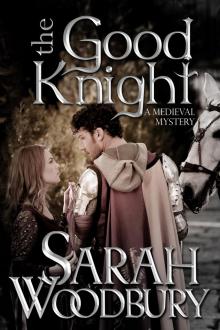 The Good Knight
The Good Knight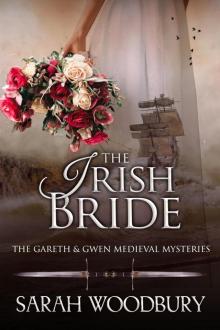 The Irish Bride
The Irish Bride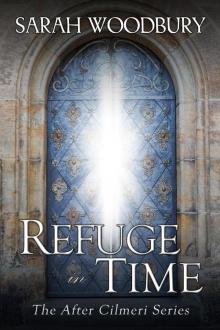 Refuge in Time
Refuge in Time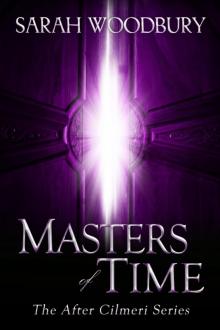 Masters of Time
Masters of Time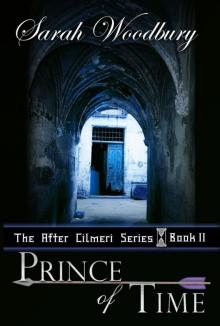 Prince of Time (Book Two in the After Cilmeri series)
Prince of Time (Book Two in the After Cilmeri series)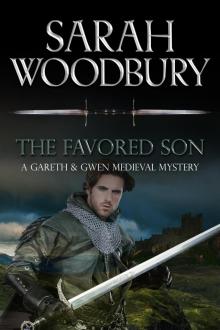 The Favored Son
The Favored Son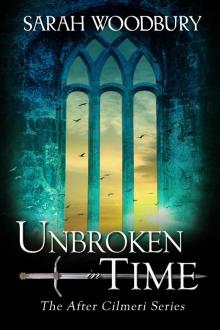 Unbroken in Time
Unbroken in Time![[The Lion of Wales 01.0] Cold My Heart Read online](http://i1.bookreadfree.com/i/03/22/the_lion_of_wales_01_0_cold_my_heart_preview.jpg) [The Lion of Wales 01.0] Cold My Heart
[The Lion of Wales 01.0] Cold My Heart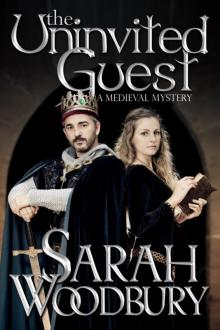 The Uninvited Guest
The Uninvited Guest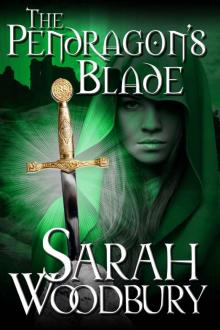 The Pendragon's Blade (The Last Pendragon Saga Book 2)
The Pendragon's Blade (The Last Pendragon Saga Book 2)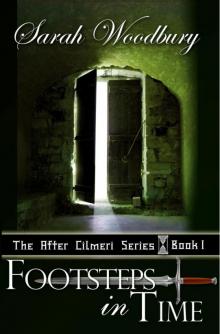 Footsteps in Time
Footsteps in Time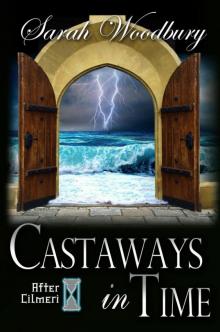 Castaways in Time (The After Cilmeri Series)
Castaways in Time (The After Cilmeri Series) Winds of Time
Winds of Time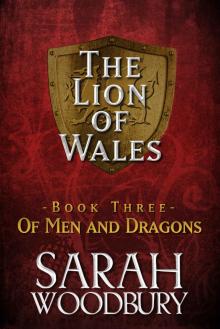 Of Men and Dragons (The Lion of Wales Book 3)
Of Men and Dragons (The Lion of Wales Book 3)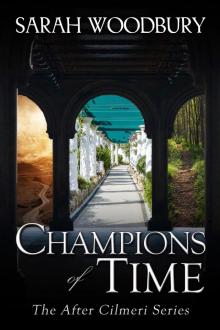 Champions of Time
Champions of Time The Pendragon's Challenge (The Last Pendragon Saga Book 7)
The Pendragon's Challenge (The Last Pendragon Saga Book 7)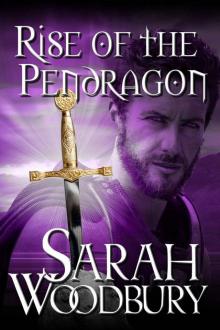 Rise of the Pendragon (The Last Pendragon Saga Book 6)
Rise of the Pendragon (The Last Pendragon Saga Book 6)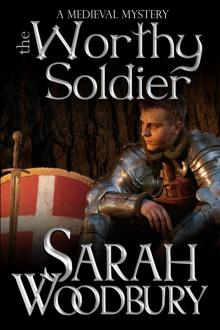 The Worthy Soldier
The Worthy Soldier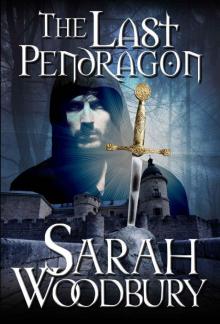 The Last Pendragon (The Last Pendragon Saga Book 1)
The Last Pendragon (The Last Pendragon Saga Book 1)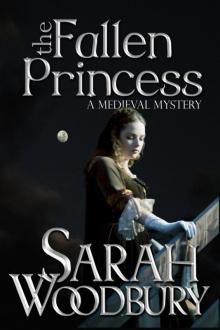 The Fallen Princess
The Fallen Princess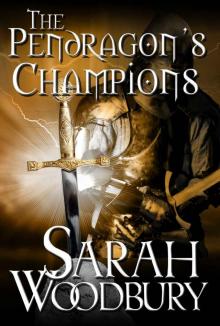 The Pendragon's Champions (The Last Pendragon Saga Book 5)
The Pendragon's Champions (The Last Pendragon Saga Book 5)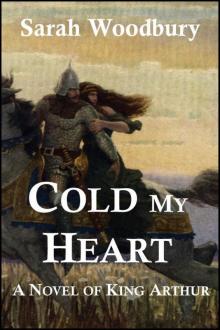 Cold My Heart: A Novel of King Arthur
Cold My Heart: A Novel of King Arthur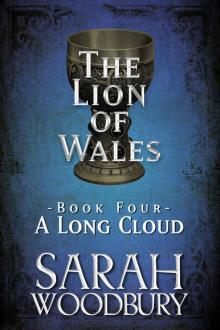 A Long Cloud (The Lion of Wales Book 4)
A Long Cloud (The Lion of Wales Book 4)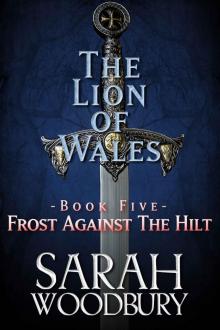 Frost Against the Hilt (The Lion of Wales Book 5)
Frost Against the Hilt (The Lion of Wales Book 5)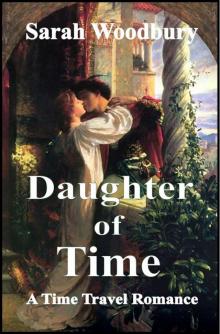 Daughter of Time: A Time Travel Romance
Daughter of Time: A Time Travel Romance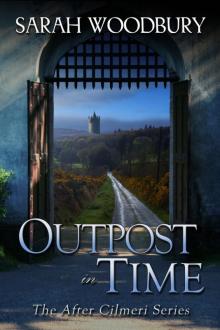 Outpost in Time
Outpost in Time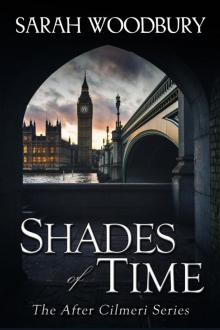 Shades of Time kobo
Shades of Time kobo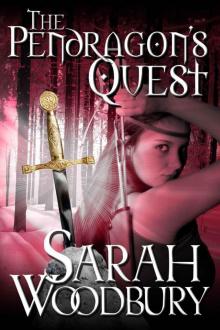 The Pendragon's Quest (The Last Pendragon Saga Book 4)
The Pendragon's Quest (The Last Pendragon Saga Book 4)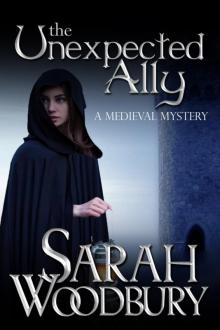 The Unexpected Ally
The Unexpected Ally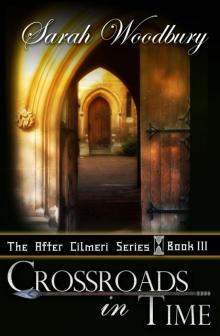 Crossroads in Time (The After Cilmeri Series)
Crossroads in Time (The After Cilmeri Series)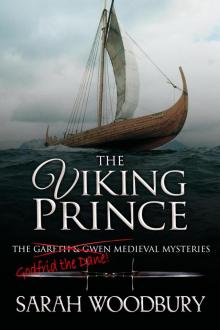 The Viking Prince
The Viking Prince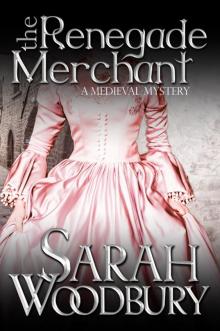 The Renegade Merchant
The Renegade Merchant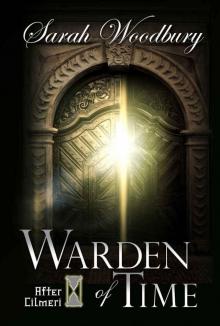 Warden of Time (The After Cilmeri Series Book 8)
Warden of Time (The After Cilmeri Series Book 8)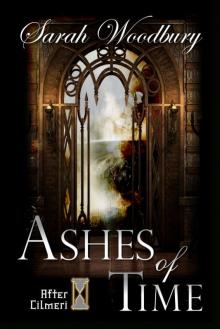 Ashes of Time (The After Cilmeri Series)
Ashes of Time (The After Cilmeri Series)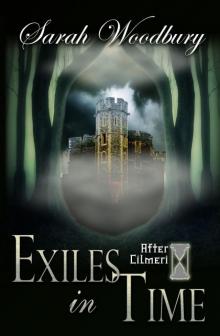 Exiles in Time (The After Cilmeri Series)
Exiles in Time (The After Cilmeri Series)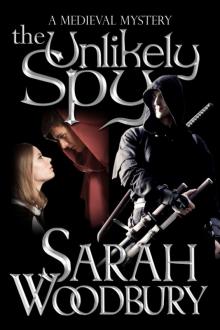 The Unlikely Spy
The Unlikely Spy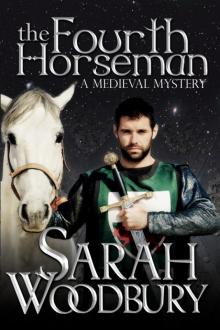 The Fourth Horseman
The Fourth Horseman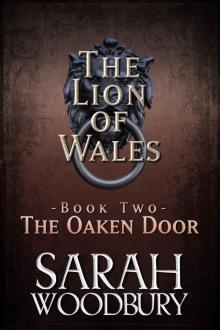 The Oaken Door (The Lion of Wales Book 2)
The Oaken Door (The Lion of Wales Book 2) Song of the Pendragon (The Last Pendragon Saga Book 3)
Song of the Pendragon (The Last Pendragon Saga Book 3)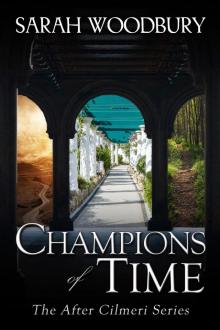 Champions of Time (The After Cilmeri Series, #13)
Champions of Time (The After Cilmeri Series, #13)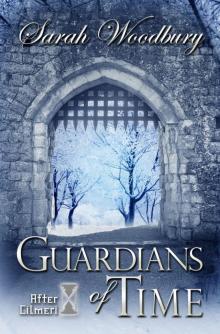 Guardians of Time
Guardians of Time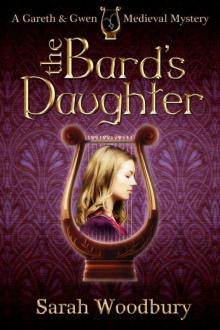 The Bard's Daughter (A Gareth and Gwen Medieval Mystery)
The Bard's Daughter (A Gareth and Gwen Medieval Mystery)